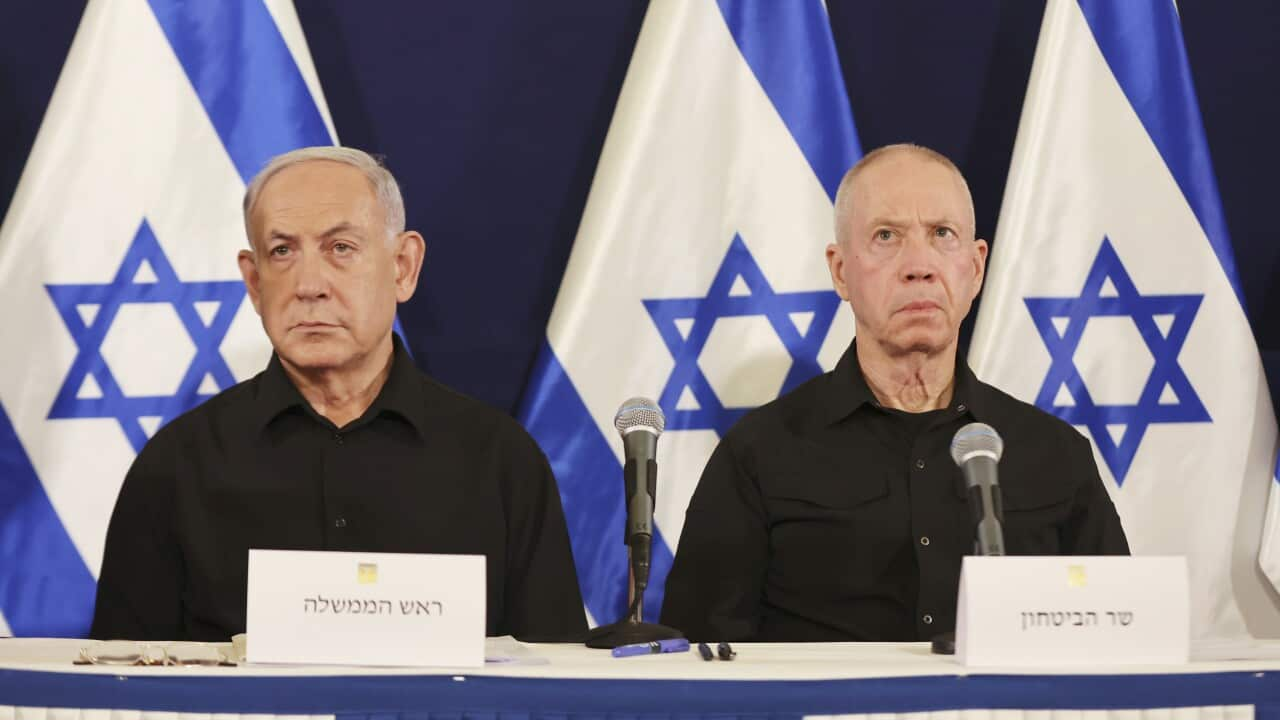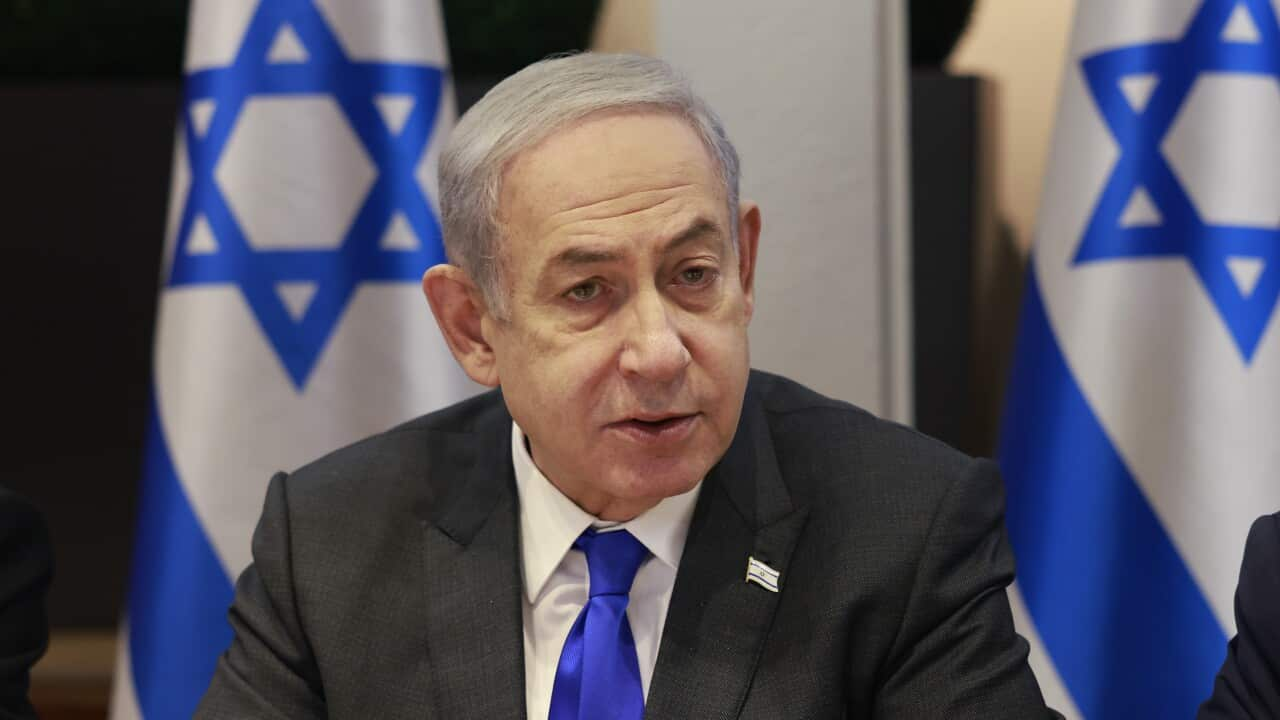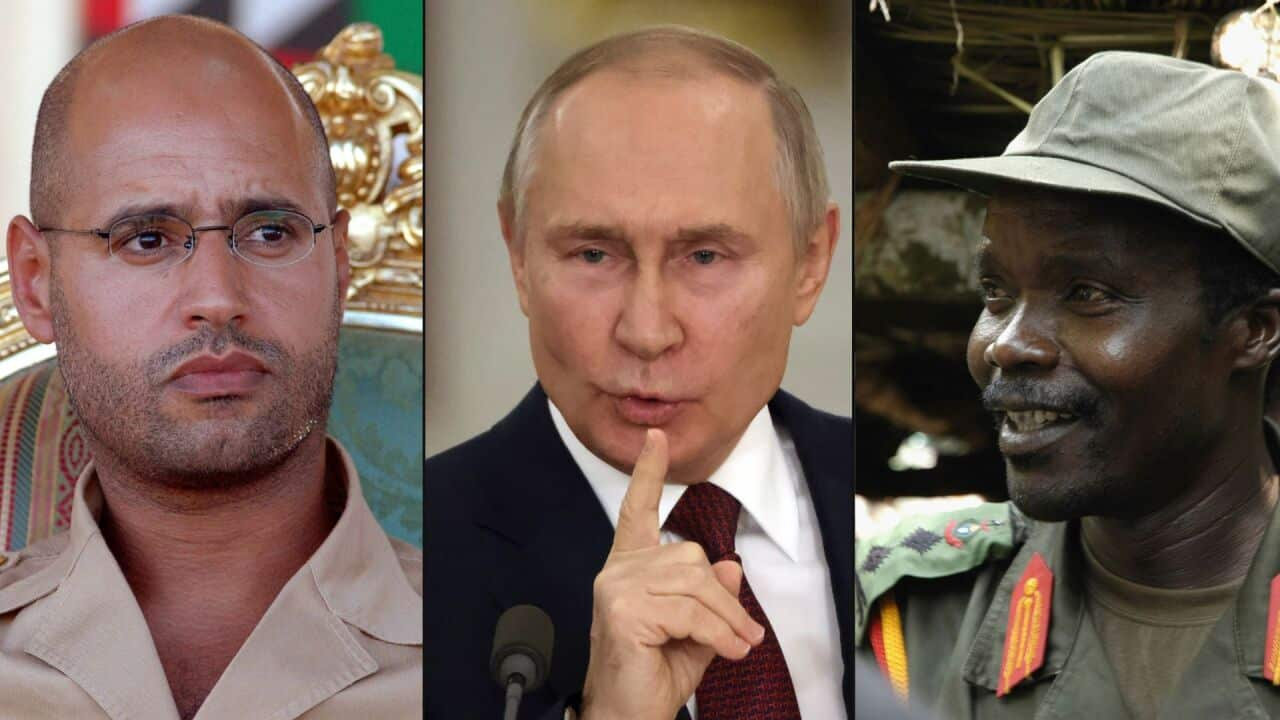The International Criminal Court (ICC) has issued three arrest warrants for Israeli Prime Minister Benjamin Netanyahu, his former defence chief Yoav Gallant and Hamas leader Ibrahim al-Masri, also known as Mohammed Diab.
Netanyahu and Gallant are accused of using starvation as a method of warfare and intentionally directing attacks against civilians in Gaza.
Mohammed Diab stands accused of crimes against humanity and war crimes of murder, extermination, torture and rape. However, , something Hamas has neither confirmed nor denied.
The prosecution indicated it would continue to gather information with respect to his reported death.
Despite Netanyahu and Gallant now being wanted across 124 countries, experts say the move is still unlikely to lead to an arrest.
Here's why.
LISTEN TO

Benjamin Netanyahu facing arrest in ICC member countries
SBS News
22/11/202405:23
Why is the ICC arrest warrant unlikely to lead to any arrests?
Imogen Saunders, an associate professor at the ANU College of Law, says it's unlikely the ICC's arrest warrants will have anyone in handcuffs. Netanyahu and Gallant will be safe from prosecution, as long as they don't travel to any of the 124 member countries of the ICC.
"There's two reasons why it's unlikely to have any major practical effect. The first is how the International Criminal Court works is they have no police force of their own. They have no way to physically arrest anyone," Saunders told SBS News.
"Instead, what they do is they rely on state parties … so those countries that have signed up to be part of the International Criminal Court carry out arrest warrants."
Only countries that are part of the ICC can carry out arrest warrants, but international law means each country only has the power of arrest in their own territory.
"So what that means for Benjamin Netanyahu is as long as he stays within Israel, Israel is the only country in the world that could actually arrest him, and they're clearly not going to do that."
Because of this, the arrest warrant is only enlivened when he leaves the territory of Israel — if he does decide to do so.
"The practical effect will be that Netanyahu will not travel to any state that has ratified the Rome Statute," Saunders said. "That still leaves quite a few states available, including the US."
The Rome Statute is the duty of care of each ICC member state to exercise its criminal jurisdiction over those responsible for international crimes.
Dutch foreign minister Caspar Veldkamp indicated on Friday Netanyahu would be arrested if he set foot in the Netherlands.
"When it comes to arrest warrants, it is clear: we execute an arrest warrant," he said. Veldkamp has since postponed a planned visit to Israel, a decision he said he made in consultation with Israel's foreign minister Gideon Saar.
One of Israel's biggest allies, the US, does not recognise the authority of the ICC and has refused to become a member.
China, India, Israel and Russia are also not ICC parties.
As a result, they're under no duty to arrest Netanyahu, even if he did travel to their country.
"In some ways, they're in an easier position than Australia would be as we're a member," Saunders said.
Netanyahu, who is in his sixth term as Israeli prime minister, having been reelected last year, has made many overseas trips as his country's leader over the years.
Last year he travelled to Jordan, France, Italy, Germany, the UK, Cyprus — all ICC member states — and the UN headquarters in New York.
This year his only overseas trip has been to the US.
What are Benjamin Netanyahu's options?
Saunders predicts Netanyahu will stay in Israel, adding it's essentially what Russian President Vladimir Putin has done
She also says we can expect pushback from Israel. "They'll try and make grounds to argue the ICC doesn't have jurisdiction because Israel hasn't actually joined the court."
"Israel will then argue even if the ICC has jurisdiction, that Netanyahu has what we call immunity as a head of state."
Usually, sitting heads of state have immunity from prosecution. But while the ICC has a clause that waives head of state immunity, there is debate over whether that waiver extends to countries that haven't joined the ICC.

Israeli Prime Minister Benjamin Netanyahu will essentially be prevented from travelling to countries who have joined the ICC. The US, Russia, India, and China have not joined. Source: Getty / Anadolu
Israel says the ICC has "lost all legitimacy".
"Israel rejects with disgust the absurd and false actions levelled against it by ICC," Netanyahu's office said in a statement, adding that the prime minister won't "give in to pressure" in the defence of Israel's citizens.
"There will definitely be arguments about it if it ever got to trial, but I suspect it most likely will not because I don't think an arrest will ever happen," Saunders said.
"I don't believe Netanyahu will visit a country that has signed the Rome Statute and would be willing to arrest him."
What will be the effect of this warrant?
Even if the warrant doesn't lead to an arrest, it will still have an effect.
"It does curtail travel," Sanders said. "It does essentially put a limitation on freedom of movement. It means that as long as this arrest warrant is in effect, it significantly changes what Benjamin Netanyahu and anyone else under arrest warrants can do in terms of travelling the world."
Saunders also said it's a "big milestone" in the history of the ICC as it's the first time an arrest warrant has been issued on a leader with such strong ties to the West.
Only two previous sitting heads of government have had arrest warrants issued by the ICC — Putin and former Sudanese president Omar al-Bashir — neither of which had strong ties to the West.
"It's very hard to argue for a system of global criminal justice if only those people without powerful allies have arrest warrants issued and those with powerful don't."
"It's a really important step forward for an idea of international criminal law applying equally regardless of what the actual outcome is going to be."
It's also expected to have flow-on effects for some of Israel's allies, including Australia, who last week for the first time in over 20 years.
Under the warrant, Australia would be forced to arrest Netanyahu.
Meanwhile, Foreign Minister Penny Wong took to X on Friday to say Australia "respects the independence of the ICC and its important role in upholding international law".
She said the federal government had been "clear that all parties to the conflict must comply with international humanitarian law".
It came as Biden in a statement labelled the ICC's arrest warrants against Netanyahu and Gallant "outrageous".
"Let me be clear once again: whatever the ICC might imply, there is no equivalence — none — between Israel and Hamas. We will always stand with Israel against threats to its security."












